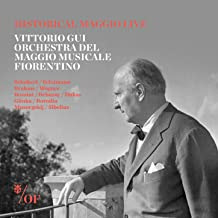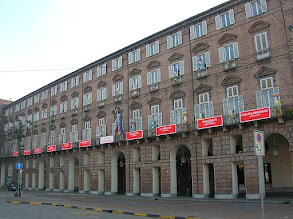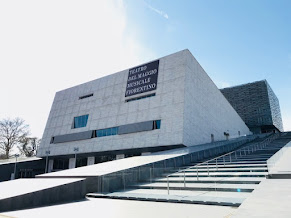Rossano Brazzi - Hollywood star
Actor quit as a lawyer for career on the big screen
The movie actor Rossano Brazzi, whose credits include The Barefoot Contessa, Three Coins in the Fountain and South Pacific, was born on this day in 1916 in Bologna. Brazzi gave up a promising career as a lawyer in order to act and went on to appear in more than 200 films, more often than not cast as a handsome heartbreaker or romantic aristocrat. He was at his peak in the 50s and 60s but continued to accept parts until the late 80s. His last major role was as Father DeCarlo in Omen III: The Final Conflict in 1981. Brazzi's family moved to Florence when he was aged four. His father Adelmo, a shoemaker, opened a leather factory in which Rossano, his brother Oscar and his sister, Franca, would all eventually work. Adelmo had ambitions for Rossano, however, helping him win a place at the University of Florence, where he obtained a law degree, and then sending him to Rome to work in the legal practice of a family friend. But Rossano had become involved in a drama group at university and looked for opportunities to continue acting. Eventually, he was approached by a film director and when he was offered a part in a film in 1939 he quit his job with the legal practice in order to devote himself to acting as a career. Read more…
__________________________________________________________
Alberto Franchetti - opera composer
Caruso sang his arias on first commercial record in 1902
The opera composer Alberto Franchetti, some of whose works were performed by the great tenor Enrico Caruso for his first commercial recording, was born on this day in 1860 in Turin. Caruso had been taken with Franchetti’s opera, Germania, when he sang the male lead role in the opera’s premiere at Teatro alla Scala in Milan in March 1902. A month later, Caruso famously made his first recording on a phonograph in a Milan hotel room and chose a number of arias from Germania and critics noted that he sang the aria Ah vieni qui… No, non chiuder gli occhi with a particular sweetness of voice. A friend and rival of Giacomo Puccini, Franchetti had a style said to have been influenced by the German composers Wagner and Meyerbeer. He was sometimes described as the "Meyerbeer of modern Italy." Despite the exposure the success of Germania and the association with Caruso brought him, Franchetti’s operas slipped quite quickly into obscurity. Blame for that can be levelled at least in part at the Fascist Racial Laws of 1938, which made life and work very difficult for Italy's Jewish population. Read more…
____________________________________________________________
Francesca Caccini – singer and composer
Court musician composed oldest surviving opera by a woman
Prolific composer and talented singer Francesca Caccini was born on this day in 1587 in Florence. Sometimes referred to by the nickname La Cecchina, she composed what is widely considered to be the oldest surviving opera by a woman composer, La Liberazione di Ruggiero, which was adapted from the epic poem, Orlando Furioso by Ludovico Ariosto. Caccini was the daughter of the composer and musician, Giulio Caccini, and she received her early musical training from him. Like her father, she regularly sang at the Medici court. She was part of an ensemble of singers referred to as le donne di Giulio Romano, which included her sister, Settimia, and other unnamed pupils. After her sister married and moved to Mantua, the ensemble broke up, but Caccini continued to serve the court as a teacher, singer and composer, where she was popular because of her musical virtuosity. She is believed to have been a quick and prolific composer but sadly very little of her music has survived. She was considered equal at the time to Jacopo Peri and Marco da Gagliano, who were also working for the court. Read more…
Home

























